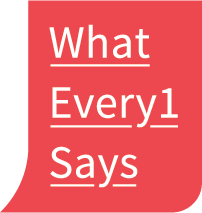(all)
Global Humanities | History of Humanities | Liberal Arts | Humanities and Higher Education | Humanities as Research Activity | Humanities Teaching & Curricula | Humanities and the Sciences | Medical Humanities | Public Humanities | Humanities Advocacy | Humanities and Social Groups | Value of Humanities | Humanities and Economic Value | Humanities Funding | Humanities Statistics | Humanities Surveys | "Crisis" of the Humanities
Humanities Organizations: Humanities Councils (U.S.) | Government Agencies | Foundations | Scholarly Associations
Humanities in: Africa | Asia (East) | Asia (South) | Australasia | Europe | Latin America | Middle East | North America: Canada - Mexico - United States | Scandinavia | United Kingdom
(all)
Lists of News Sources | Databases with News Archives | History of Journalism | Journalism Studies | Journalism Statistics | Journalism Organizations | Student Journalism | Data Journalism | Media Frames (analyzing & changing media narratives using "frame theory") | Media Bias | Fake News | Journalism and Minorities | Journalism and Women | Press Freedom | News & Social Media
(all)
Corpus Representativeness
Comparison paradigms for idea of a corpus: Archives as Paradigm | Canons as Paradigm | Editions as Paradigm | Corpus Linguistics as Paradigm
(all)
Artificial Intelligence | Big Data | Data Mining | Data Notebooks (Jupyter Notebooks) | Data Visualization (see also Topic Model Visualizations) | Hierarchical Clustering | Interpretability & Explainability (see also Topic Model Interpretation) | Mapping | Natural Language Processing | Network Analysis | Open Science | Reporting & Documentation Methods | Reproducibility | Sentiment Analysis | Social Media Analysis | Statistical Methods | Text Analysis (see also Topic Modeling) | Text Classification | Wikification | Word Embedding & Vector Semantics
Topic Modeling (all)
Selected DH research and resources bearing on, or utilized by, the WE1S project.
(all)
Distant Reading | Cultural Analytics | | Sociocultural Approaches | Topic Modeling in DH | Non-consumptive Use
Searchable version of bibliography on Zotero site
For WE1S developers: Biblio style guide | Biblio collection form (suggest additions) | WE1S Bibliography Ontology Outline
2133649
Open science
chicago-fullnote-bibliography
50
date
desc
year
1
1
1
10435
https://we1s.ucsb.edu/wp-content/plugins/zotpress/
%7B%22status%22%3A%22success%22%2C%22updateneeded%22%3Afalse%2C%22instance%22%3Afalse%2C%22meta%22%3A%7B%22request_last%22%3A0%2C%22request_next%22%3A0%2C%22used_cache%22%3Atrue%7D%2C%22data%22%3A%5B%7B%22key%22%3A%22TDGQ8KQU%22%2C%22library%22%3A%7B%22id%22%3A2133649%7D%2C%22meta%22%3A%7B%22creatorSummary%22%3A%22Open%20Lab%20Notebooks%22%2C%22parsedDate%22%3A%222021%22%2C%22numChildren%22%3A0%7D%2C%22bib%22%3A%22%26lt%3Bdiv%20class%3D%26quot%3Bcsl-bib-body%26quot%3B%20style%3D%26quot%3Bline-height%3A%201.35%3B%20padding-left%3A%201em%3B%20text-indent%3A-1em%3B%26quot%3B%26gt%3B%5Cn%20%20%26lt%3Bdiv%20class%3D%26quot%3Bcsl-entry%26quot%3B%26gt%3BOpen%20Lab%20Notebooks.%20%26%23x201C%3BHome%20Page.%26%23x201D%3B%20openlabnotebooks.org%2C%202021.%20%26lt%3Ba%20class%3D%26%23039%3Bzp-ItemURL%26%23039%3B%20href%3D%26%23039%3Bhttps%3A%5C%2F%5C%2Fopenlabnotebooks.org%5C%2F%26%23039%3B%26gt%3Bhttps%3A%5C%2F%5C%2Fopenlabnotebooks.org%5C%2F%26lt%3B%5C%2Fa%26gt%3B.%20%26lt%3Ba%20title%3D%26%23039%3BCite%20in%20RIS%20Format%26%23039%3B%20class%3D%26%23039%3Bzp-CiteRIS%26%23039%3B%20data-zp-cite%3D%26%23039%3Bapi_user_id%3D2133649%26amp%3Bitem_key%3DTDGQ8KQU%26%23039%3B%20href%3D%26%23039%3Bjavascript%3Avoid%280%29%3B%26%23039%3B%26gt%3BCite%26lt%3B%5C%2Fa%26gt%3B%20%26lt%3B%5C%2Fdiv%26gt%3B%5Cn%26lt%3B%5C%2Fdiv%26gt%3B%22%2C%22data%22%3A%7B%22itemType%22%3A%22webpage%22%2C%22title%22%3A%22Home%20page%22%2C%22creators%22%3A%5B%7B%22creatorType%22%3A%22author%22%2C%22firstName%22%3A%22%22%2C%22lastName%22%3A%22Open%20Lab%20Notebooks%22%7D%5D%2C%22abstractNote%22%3A%22In%20a%20groundbreaking%20initiative%2C%20scientists%20around%20the%20world%20from%20Universities%20in%20Canada%2C%20France%2C%20Sweden%2C%20the%20UK%2C%20and%20the%20USA%20are%20starting%20to%20share%20their%20laboratory%20notebooks%20live%2C%20online.%20We%20believe%20that%20making%20our%20research%2C%20data%2C%20and%20protocols%20available%20on%20a%20day-to-day%20basis%20will%20generate%20scientific%20ideas%20and%20discussions%2C%20avoid%20redundancy%2C%20foster%20collaborations%2C%20and%20accelerate%20progress.%20Our%20hope%20is%20that%20this%20initiative%20will%20inspire%20others%20to%20follow.%22%2C%22date%22%3A%222021%22%2C%22url%22%3A%22https%3A%5C%2F%5C%2Fopenlabnotebooks.org%5C%2F%22%2C%22language%22%3A%22en%22%2C%22collections%22%3A%5B%5D%2C%22dateModified%22%3A%222021-04-06T22%3A05%3A08Z%22%2C%22tags%22%3A%5B%7B%22tag%22%3A%22Open%20lab%20notebooks%22%7D%2C%7B%22tag%22%3A%22Open%20science%22%7D%5D%7D%7D%2C%7B%22key%22%3A%22NW357MSJ%22%2C%22library%22%3A%7B%22id%22%3A2133649%7D%2C%22meta%22%3A%7B%22creatorSummary%22%3A%22Harding%22%2C%22parsedDate%22%3A%222019%22%2C%22numChildren%22%3A0%7D%2C%22bib%22%3A%22%26lt%3Bdiv%20class%3D%26quot%3Bcsl-bib-body%26quot%3B%20style%3D%26quot%3Bline-height%3A%201.35%3B%20padding-left%3A%201em%3B%20text-indent%3A-1em%3B%26quot%3B%26gt%3B%5Cn%20%20%26lt%3Bdiv%20class%3D%26quot%3Bcsl-entry%26quot%3B%26gt%3BHarding%2C%20Rachel%20J.%20%26%23x201C%3BOpen%20Notebook%20Science%20Can%20Maximize%20Impact%20for%20Rare%20Disease%20Projects.%26%23x201D%3B%20%26lt%3Bi%26gt%3BPLOS%20Biology%26lt%3B%5C%2Fi%26gt%3B%2017%2C%20no.%201%20%282019%29%3A%20e3000120.%20%26lt%3Ba%20class%3D%26%23039%3Bzp-DOIURL%26%23039%3B%20href%3D%26%23039%3Bhttps%3A%5C%2F%5C%2Fdoi.org%5C%2F10.1371%5C%2Fjournal.pbio.3000120%26%23039%3B%26gt%3Bhttps%3A%5C%2F%5C%2Fdoi.org%5C%2F10.1371%5C%2Fjournal.pbio.3000120%26lt%3B%5C%2Fa%26gt%3B.%20%26lt%3Ba%20title%3D%26%23039%3BCite%20in%20RIS%20Format%26%23039%3B%20class%3D%26%23039%3Bzp-CiteRIS%26%23039%3B%20data-zp-cite%3D%26%23039%3Bapi_user_id%3D2133649%26amp%3Bitem_key%3DNW357MSJ%26%23039%3B%20href%3D%26%23039%3Bjavascript%3Avoid%280%29%3B%26%23039%3B%26gt%3BCite%26lt%3B%5C%2Fa%26gt%3B%20%26lt%3B%5C%2Fdiv%26gt%3B%5Cn%26lt%3B%5C%2Fdiv%26gt%3B%22%2C%22data%22%3A%7B%22itemType%22%3A%22journalArticle%22%2C%22title%22%3A%22Open%20notebook%20science%20can%20maximize%20impact%20for%20rare%20disease%20projects%22%2C%22creators%22%3A%5B%7B%22creatorType%22%3A%22author%22%2C%22firstName%22%3A%22Rachel%20J.%22%2C%22lastName%22%3A%22Harding%22%7D%5D%2C%22abstractNote%22%3A%22Transparency%20lies%20at%20the%20heart%20of%20the%20open%20lab%20notebook%20movement.%20Open%20notebook%20scientists%20publish%20laboratory%20experiments%20and%20findings%20in%20the%20public%20domain%20in%20real%20time%2C%20without%20restrictions%20or%20omissions.%20Research%20on%20rare%20diseases%20is%20especially%20amenable%20to%20the%20open%20notebook%20model%20because%20it%20can%20both%20increase%20scientific%20impact%20and%20serve%20as%20a%20mechanism%20to%20engage%20patient%20groups%20in%20the%20scientific%20process.%20Here%2C%20I%20outline%20and%20describe%20my%20own%20success%20with%20my%20open%20notebook%20project%2C%20LabScribbles%2C%20as%20well%20as%20other%20efforts%20included%20in%20the%20openlabnotebooks.org%20initiative.%22%2C%22date%22%3A%222019%22%2C%22language%22%3A%22en%22%2C%22DOI%22%3A%2210.1371%5C%2Fjournal.pbio.3000120%22%2C%22ISSN%22%3A%221545-7885%22%2C%22url%22%3A%22https%3A%5C%2F%5C%2Fjournals.plos.org%5C%2Fplosbiology%5C%2Farticle%3Fid%3D10.1371%5C%2Fjournal.pbio.3000120%22%2C%22collections%22%3A%5B%5D%2C%22dateModified%22%3A%222021-04-06T23%3A23%3A21Z%22%2C%22tags%22%3A%5B%7B%22tag%22%3A%22Open%20lab%20notebooks%22%7D%2C%7B%22tag%22%3A%22Open%20science%22%7D%5D%7D%7D%2C%7B%22key%22%3A%22JHNZLIRZ%22%2C%22library%22%3A%7B%22id%22%3A2133649%7D%2C%22meta%22%3A%7B%22creatorSummary%22%3A%22Schapira%20and%20Harding%22%2C%22parsedDate%22%3A%222019%22%2C%22numChildren%22%3A0%7D%2C%22bib%22%3A%22%26lt%3Bdiv%20class%3D%26quot%3Bcsl-bib-body%26quot%3B%20style%3D%26quot%3Bline-height%3A%201.35%3B%20padding-left%3A%201em%3B%20text-indent%3A-1em%3B%26quot%3B%26gt%3B%5Cn%20%20%26lt%3Bdiv%20class%3D%26quot%3Bcsl-entry%26quot%3B%26gt%3BSchapira%2C%20Matthieu%2C%20and%20Rachel%20J.%20Harding.%20%26%23x201C%3BOpen%20Laboratory%20Notebooks%3A%20Good%20for%20Science%2C%20Good%20for%20Society%2C%20Good%20for%20Scientists.%26%23x201D%3B%20%26lt%3Bi%26gt%3BF1000Research%26lt%3B%5C%2Fi%26gt%3B%208%20%282019%29.%20%26lt%3Ba%20class%3D%26%23039%3Bzp-DOIURL%26%23039%3B%20href%3D%26%23039%3Bhttps%3A%5C%2F%5C%2Fdoi.org%5C%2F10.12688%5C%2Ff1000research.17710.2%26%23039%3B%26gt%3Bhttps%3A%5C%2F%5C%2Fdoi.org%5C%2F10.12688%5C%2Ff1000research.17710.2%26lt%3B%5C%2Fa%26gt%3B.%20%26lt%3Ba%20title%3D%26%23039%3BCite%20in%20RIS%20Format%26%23039%3B%20class%3D%26%23039%3Bzp-CiteRIS%26%23039%3B%20data-zp-cite%3D%26%23039%3Bapi_user_id%3D2133649%26amp%3Bitem_key%3DJHNZLIRZ%26%23039%3B%20href%3D%26%23039%3Bjavascript%3Avoid%280%29%3B%26%23039%3B%26gt%3BCite%26lt%3B%5C%2Fa%26gt%3B%20%26lt%3B%5C%2Fdiv%26gt%3B%5Cn%26lt%3B%5C%2Fdiv%26gt%3B%22%2C%22data%22%3A%7B%22itemType%22%3A%22journalArticle%22%2C%22title%22%3A%22Open%20laboratory%20notebooks%3A%20good%20for%20science%2C%20good%20for%20society%2C%20good%20for%20scientists%22%2C%22creators%22%3A%5B%7B%22creatorType%22%3A%22author%22%2C%22firstName%22%3A%22Matthieu%22%2C%22lastName%22%3A%22Schapira%22%7D%2C%7B%22creatorType%22%3A%22author%22%2C%22firstName%22%3A%22Rachel%20J.%22%2C%22lastName%22%3A%22Harding%22%7D%5D%2C%22abstractNote%22%3A%22The%20fundamental%20goal%20of%20the%20growing%20open%20science%20movement%20is%20to%20increase%20the%20efficiency%20of%20the%20global%20scientific%20community%20and%20accelerate%20progress%20and%20discoveries%20for%20the%20common%20good.%20Central%20to%20this%20principle%20is%20the%20rapid%20disclosure%20of%20research%20outputs%20in%20open-access%20peer-reviewed%20journals%20and%20on%20pre-print%20servers.%20The%20next%20bold%20step%20in%20this%20direction%20is%20open%20laboratory%20notebooks%2C%20where%20research%20scientists%20share%20their%20research%20%5Cu2014%20including%20detailed%20protocols%2C%20negative%20and%20positive%20results%20%5Cu2014%20online%20and%20in%20near-real-time%20to%20synergize%20with%20their%20peers.%20Here%2C%20we%20highlight%20the%20benefits%20of%20open%20lab%20notebooks%20to%20science%2C%20society%20and%20scientists%2C%20and%20discuss%20the%20challenges%20that%20this%20nascent%20movement%20is%20facing.%20We%20also%20present%20the%20implementation%20and%20progress%20of%20our%20own%20initiative%20at%20openlabnotebooks.org%2C%20with%20more%20than%2020%20active%20contributors%20after%20one%20year%20of%20operation.%22%2C%22date%22%3A%222019%22%2C%22language%22%3A%22en%22%2C%22DOI%22%3A%2210.12688%5C%2Ff1000research.17710.2%22%2C%22ISSN%22%3A%222046-1402%22%2C%22url%22%3A%22https%3A%5C%2F%5C%2Fwww.ncbi.nlm.nih.gov%5C%2Fpmc%5C%2Farticles%5C%2FPMC6694453%5C%2F%22%2C%22collections%22%3A%5B%5D%2C%22dateModified%22%3A%222021-04-06T22%3A01%3A38Z%22%2C%22tags%22%3A%5B%7B%22tag%22%3A%22Open%20lab%20notebooks%22%7D%2C%7B%22tag%22%3A%22Open%20science%22%7D%5D%7D%7D%2C%7B%22key%22%3A%22DIYQUIAZ%22%2C%22library%22%3A%7B%22id%22%3A2133649%7D%2C%22meta%22%3A%7B%22creatorSummary%22%3A%22Rule%20et%20al.%22%2C%22parsedDate%22%3A%222019%22%2C%22numChildren%22%3A0%7D%2C%22bib%22%3A%22%26lt%3Bdiv%20class%3D%26quot%3Bcsl-bib-body%26quot%3B%20style%3D%26quot%3Bline-height%3A%201.35%3B%20padding-left%3A%201em%3B%20text-indent%3A-1em%3B%26quot%3B%26gt%3B%5Cn%20%20%26lt%3Bdiv%20class%3D%26quot%3Bcsl-entry%26quot%3B%26gt%3BRule%2C%20Adam%2C%20Amanda%20Birmingham%2C%20Cristal%20Zuniga%2C%20Ilkay%20Altintas%2C%20Shih-Cheng%20Huang%2C%20Rob%20Knight%2C%20Niema%20Moshiri%2C%20et%20al.%20%26%23x201C%3BTen%20Simple%20Rules%20for%20Writing%20and%20Sharing%20Computational%20Analyses%20in%20Jupyter%20Notebooks.%26%23x201D%3B%20%26lt%3Bi%26gt%3BPLOS%20Computational%20Biology%26lt%3B%5C%2Fi%26gt%3B%2015%2C%20no.%207%20%282019%29%3A%20e1007007.%20%26lt%3Ba%20class%3D%26%23039%3Bzp-DOIURL%26%23039%3B%20href%3D%26%23039%3Bhttps%3A%5C%2F%5C%2Fdoi.org%5C%2F10.1371%5C%2Fjournal.pcbi.1007007%26%23039%3B%26gt%3Bhttps%3A%5C%2F%5C%2Fdoi.org%5C%2F10.1371%5C%2Fjournal.pcbi.1007007%26lt%3B%5C%2Fa%26gt%3B.%20%26lt%3Ba%20title%3D%26%23039%3BCite%20in%20RIS%20Format%26%23039%3B%20class%3D%26%23039%3Bzp-CiteRIS%26%23039%3B%20data-zp-cite%3D%26%23039%3Bapi_user_id%3D2133649%26amp%3Bitem_key%3DDIYQUIAZ%26%23039%3B%20href%3D%26%23039%3Bjavascript%3Avoid%280%29%3B%26%23039%3B%26gt%3BCite%26lt%3B%5C%2Fa%26gt%3B%20%26lt%3B%5C%2Fdiv%26gt%3B%5Cn%26lt%3B%5C%2Fdiv%26gt%3B%22%2C%22data%22%3A%7B%22itemType%22%3A%22journalArticle%22%2C%22title%22%3A%22Ten%20simple%20rules%20for%20writing%20and%20sharing%20computational%20analyses%20in%20Jupyter%20Notebooks%22%2C%22creators%22%3A%5B%7B%22creatorType%22%3A%22author%22%2C%22firstName%22%3A%22Adam%22%2C%22lastName%22%3A%22Rule%22%7D%2C%7B%22creatorType%22%3A%22author%22%2C%22firstName%22%3A%22Amanda%22%2C%22lastName%22%3A%22Birmingham%22%7D%2C%7B%22creatorType%22%3A%22author%22%2C%22firstName%22%3A%22Cristal%22%2C%22lastName%22%3A%22Zuniga%22%7D%2C%7B%22creatorType%22%3A%22author%22%2C%22firstName%22%3A%22Ilkay%22%2C%22lastName%22%3A%22Altintas%22%7D%2C%7B%22creatorType%22%3A%22author%22%2C%22firstName%22%3A%22Shih-Cheng%22%2C%22lastName%22%3A%22Huang%22%7D%2C%7B%22creatorType%22%3A%22author%22%2C%22firstName%22%3A%22Rob%22%2C%22lastName%22%3A%22Knight%22%7D%2C%7B%22creatorType%22%3A%22author%22%2C%22firstName%22%3A%22Niema%22%2C%22lastName%22%3A%22Moshiri%22%7D%2C%7B%22creatorType%22%3A%22author%22%2C%22firstName%22%3A%22Mai%20H.%22%2C%22lastName%22%3A%22Nguyen%22%7D%2C%7B%22creatorType%22%3A%22author%22%2C%22firstName%22%3A%22Sara%20Brin%22%2C%22lastName%22%3A%22Rosenthal%22%7D%2C%7B%22creatorType%22%3A%22author%22%2C%22firstName%22%3A%22Fernando%22%2C%22lastName%22%3A%22P%5Cu00e9rez%22%7D%2C%7B%22creatorType%22%3A%22author%22%2C%22firstName%22%3A%22Peter%20W.%22%2C%22lastName%22%3A%22Rose%22%7D%5D%2C%22abstractNote%22%3A%22As%20studies%20grow%20in%20scale%20and%20complexity%2C%20it%20has%20become%20increasingly%20difficult%20to%20provide%20clear%20descriptions%20and%20open%20access%20to%20the%20methods%20and%20data%20needed%20to%20understand%20and%20reproduce%20computational%20research.%20Numerous%20papers%2C%20including%20several%20in%20the%20Ten%20Simple%20Rules%20collection%2C%20have%20highlighted%20the%20need%20for%20robust%20and%20reproducible%20analyses%20in%20computational%20research%2C%20described%20the%20difficulty%20of%20achieving%20these%20standards%2C%20and%20enumerated%20best%20practices.%20We%20aim%20to%20augment%20this%20existing%20wellspring%20of%20advice%20by%20addressing%20the%20unique%20challenges%20and%20opportunities%20that%20arise%20when%20using%20computational%20notebooks%2C%20especially%20Jupyter%20Notebooks%2C%20for%20research.%22%2C%22date%22%3A%222019%22%2C%22language%22%3A%22en%22%2C%22DOI%22%3A%2210.1371%5C%2Fjournal.pcbi.1007007%22%2C%22ISSN%22%3A%221553-7358%22%2C%22url%22%3A%22https%3A%5C%2F%5C%2Fjournals.plos.org%5C%2Fploscompbiol%5C%2Farticle%3Fid%3D10.1371%5C%2Fjournal.pcbi.1007007%22%2C%22collections%22%3A%5B%5D%2C%22dateModified%22%3A%222020-09-03T05%3A31%3A36Z%22%2C%22tags%22%3A%5B%7B%22tag%22%3A%22Data%20notebooks%22%7D%2C%7B%22tag%22%3A%22Data%20science%22%7D%2C%7B%22tag%22%3A%22Open%20science%22%7D%2C%7B%22tag%22%3A%22Reproducibility%22%7D%5D%7D%7D%2C%7B%22key%22%3A%22QXN4AUVS%22%2C%22library%22%3A%7B%22id%22%3A2133649%7D%2C%22meta%22%3A%7B%22creatorSummary%22%3A%22Mendez%20et%20al.%22%2C%22parsedDate%22%3A%222019%22%2C%22numChildren%22%3A0%7D%2C%22bib%22%3A%22%26lt%3Bdiv%20class%3D%26quot%3Bcsl-bib-body%26quot%3B%20style%3D%26quot%3Bline-height%3A%201.35%3B%20padding-left%3A%201em%3B%20text-indent%3A-1em%3B%26quot%3B%26gt%3B%5Cn%20%20%26lt%3Bdiv%20class%3D%26quot%3Bcsl-entry%26quot%3B%26gt%3BMendez%2C%20Kevin%20M.%2C%20Leighton%20Pritchard%2C%20Stacey%20N.%20Reinke%2C%20and%20David%20I.%20Broadhurst.%20%26%23x201C%3BToward%20Collaborative%20Open%20Data%20Science%20in%20Metabolomics%20Using%20Jupyter%20Notebooks%20and%20Cloud%20Computing.%26%23x201D%3B%20%26lt%3Bi%26gt%3BMetabolomics%26lt%3B%5C%2Fi%26gt%3B%2015%2C%20no.%2010%20%282019%29%3A%20125.%20%26lt%3Ba%20class%3D%26%23039%3Bzp-ItemURL%26%23039%3B%20href%3D%26%23039%3Bhttps%3A%5C%2F%5C%2Fdoi.org%5C%2F10.1007%5C%2Fs11306-019-1588-0%26%23039%3B%26gt%3Bhttps%3A%5C%2F%5C%2Fdoi.org%5C%2F10.1007%5C%2Fs11306-019-1588-0%26lt%3B%5C%2Fa%26gt%3B.%20%26lt%3Ba%20title%3D%26%23039%3BCite%20in%20RIS%20Format%26%23039%3B%20class%3D%26%23039%3Bzp-CiteRIS%26%23039%3B%20data-zp-cite%3D%26%23039%3Bapi_user_id%3D2133649%26amp%3Bitem_key%3DQXN4AUVS%26%23039%3B%20href%3D%26%23039%3Bjavascript%3Avoid%280%29%3B%26%23039%3B%26gt%3BCite%26lt%3B%5C%2Fa%26gt%3B%20%26lt%3B%5C%2Fdiv%26gt%3B%5Cn%26lt%3B%5C%2Fdiv%26gt%3B%22%2C%22data%22%3A%7B%22itemType%22%3A%22journalArticle%22%2C%22title%22%3A%22Toward%20collaborative%20open%20data%20science%20in%20metabolomics%20using%20Jupyter%20Notebooks%20and%20cloud%20computing%22%2C%22creators%22%3A%5B%7B%22creatorType%22%3A%22author%22%2C%22firstName%22%3A%22Kevin%20M.%22%2C%22lastName%22%3A%22Mendez%22%7D%2C%7B%22creatorType%22%3A%22author%22%2C%22firstName%22%3A%22Leighton%22%2C%22lastName%22%3A%22Pritchard%22%7D%2C%7B%22creatorType%22%3A%22author%22%2C%22firstName%22%3A%22Stacey%20N.%22%2C%22lastName%22%3A%22Reinke%22%7D%2C%7B%22creatorType%22%3A%22author%22%2C%22firstName%22%3A%22David%20I.%22%2C%22lastName%22%3A%22Broadhurst%22%7D%5D%2C%22abstractNote%22%3A%22A%20lack%20of%20transparency%20and%20reporting%20standards%20in%20the%20scientific%20community%20has%20led%20to%20increasing%20and%20widespread%20concerns%20relating%20to%20reproduction%20and%20integrity%20of%20results.%20As%20an%20omics%20science%2C%20which%20generates%20vast%20amounts%20of%20data%20and%20relies%20heavily%20on%20data%20science%20for%20deriving%20biological%20meaning%2C%20metabolomics%20is%20highly%20vulnerable%20to%20irreproducibility.%20The%20metabolomics%20community%20has%20made%20substantial%20efforts%20to%20align%20with%20FAIR%20data%20standards%20by%20promoting%20open%20data%20formats%2C%20data%20repositories%2C%20online%20spectral%20libraries%2C%20and%20metabolite%20databases.%20Open%20data%20analysis%20platforms%20also%20exist%3B%20however%2C%20they%20tend%20to%20be%20inflexible%20and%20rely%20on%20the%20user%20to%20adequately%20report%20their%20methods%20and%20results.%20To%20enable%20FAIR%20data%20science%20in%20metabolomics%2C%20methods%20and%20results%20need%20to%20be%20transparently%20disseminated%20in%20a%20manner%20that%20is%20rapid%2C%20reusable%2C%20and%20fully%20integrated%20with%20the%20published%20work.%20To%20ensure%20broad%20use%20within%20the%20community%20such%20a%20framework%20also%20needs%20to%20be%20inclusive%20and%20intuitive%20for%20both%20computational%20novices%20and%20experts%20alike.%22%2C%22date%22%3A%222019%22%2C%22language%22%3A%22en%22%2C%22DOI%22%3A%2210.1007%5C%2Fs11306-019-1588-0%22%2C%22ISSN%22%3A%221573-3890%22%2C%22url%22%3A%22https%3A%5C%2F%5C%2Fdoi.org%5C%2F10.1007%5C%2Fs11306-019-1588-0%22%2C%22collections%22%3A%5B%5D%2C%22dateModified%22%3A%222020-09-03T05%3A02%3A08Z%22%2C%22tags%22%3A%5B%7B%22tag%22%3A%22Data%20notebooks%22%7D%2C%7B%22tag%22%3A%22Open%20science%22%7D%2C%7B%22tag%22%3A%22Reproducibility%22%7D%5D%7D%7D%2C%7B%22key%22%3A%22I49JFJIT%22%2C%22library%22%3A%7B%22id%22%3A2133649%7D%2C%22meta%22%3A%7B%22creatorSummary%22%3A%22Kn%5Cu00f6chelmann%22%2C%22parsedDate%22%3A%222019%22%2C%22numChildren%22%3A0%7D%2C%22bib%22%3A%22%26lt%3Bdiv%20class%3D%26quot%3Bcsl-bib-body%26quot%3B%20style%3D%26quot%3Bline-height%3A%201.35%3B%20padding-left%3A%201em%3B%20text-indent%3A-1em%3B%26quot%3B%26gt%3B%5Cn%20%20%26lt%3Bdiv%20class%3D%26quot%3Bcsl-entry%26quot%3B%26gt%3BKn%26%23xF6%3Bchelmann%2C%20Marcel.%20%26%23x201C%3BOpen%20Science%20in%20the%20Humanities%2C%20or%3A%20Open%20Humanities%3F%26%23x201D%3B%20%26lt%3Bi%26gt%3BPublications%26lt%3B%5C%2Fi%26gt%3B%207%2C%20no.%204%20%282019%29%3A%2065.%20%26lt%3Ba%20class%3D%26%23039%3Bzp-DOIURL%26%23039%3B%20href%3D%26%23039%3Bhttps%3A%5C%2F%5C%2Fdoi.org%5C%2F10.3390%5C%2Fpublications7040065%26%23039%3B%26gt%3Bhttps%3A%5C%2F%5C%2Fdoi.org%5C%2F10.3390%5C%2Fpublications7040065%26lt%3B%5C%2Fa%26gt%3B.%20%26lt%3Ba%20title%3D%26%23039%3BCite%20in%20RIS%20Format%26%23039%3B%20class%3D%26%23039%3Bzp-CiteRIS%26%23039%3B%20data-zp-cite%3D%26%23039%3Bapi_user_id%3D2133649%26amp%3Bitem_key%3DI49JFJIT%26%23039%3B%20href%3D%26%23039%3Bjavascript%3Avoid%280%29%3B%26%23039%3B%26gt%3BCite%26lt%3B%5C%2Fa%26gt%3B%20%26lt%3B%5C%2Fdiv%26gt%3B%5Cn%26lt%3B%5C%2Fdiv%26gt%3B%22%2C%22data%22%3A%7B%22itemType%22%3A%22journalArticle%22%2C%22title%22%3A%22Open%20Science%20in%20the%20Humanities%2C%20or%3A%20Open%20Humanities%3F%22%2C%22creators%22%3A%5B%7B%22creatorType%22%3A%22author%22%2C%22firstName%22%3A%22Marcel%22%2C%22lastName%22%3A%22Kn%5Cu00f6chelmann%22%7D%5D%2C%22abstractNote%22%3A%22Open%20science%20refers%20to%20both%20the%20practices%20and%20norms%20of%20more%20open%20and%20transparent%20communication%20and%20research%20in%20scientific%20disciplines%20and%20the%20discourse%20on%20these%20practices%20and%20norms.%20There%20is%20no%20such%20discourse%20dedicated%20to%20the%20humanities.%20Though%20the%20humanities%20appear%20to%20be%20less%20coherent%20as%20a%20cluster%20of%20scholarship%20than%20the%20sciences%20are%2C%20they%20do%20share%20unique%20characteristics%20which%20lead%20to%20distinct%20scholarly%20communication%20and%20research%20practices.%20A%20discourse%20on%20making%20these%20practices%20more%20open%20and%20transparent%20needs%20to%20take%20account%20of%20these%20characteristics.%20The%20prevalent%20scientific%20perspective%20in%20the%20discourse%20on%20more%20open%20practices%20does%20not%20do%20so%2C%20which%20confirms%20that%20the%20discourse%5Cu2019s%20name%2C%20open%20science%2C%20indeed%20excludes%20the%20humanities%20so%20that%20talking%20about%20open%20science%20in%20the%20humanities%20is%20incoherent.%20In%20this%20paper%2C%20I%20argue%20that%20there%20needs%20to%20be%20a%20dedicated%20discourse%20for%20more%20open%20research%20and%20communication%20practices%20in%20the%20humanities%2C%20one%20that%20integrates%20several%20elements%20currently%20fragmented%20into%20smaller%2C%20unconnected%20discourses%20%28such%20as%20on%20open%20access%2C%20preprints%2C%20or%20peer%20review%29.%20I%20discuss%20three%20essential%20elements%20of%20open%20science%5Cu2014preprints%2C%20open%20peer%20review%20practices%2C%20and%20liberal%20open%20licences%5Cu2014in%20the%20realm%20of%20the%20humanities%20to%20demonstrate%20why%20a%20dedicated%20open%20humanities%20discourse%20is%20required.%22%2C%22date%22%3A%222019%22%2C%22language%22%3A%22en%22%2C%22DOI%22%3A%2210.3390%5C%2Fpublications7040065%22%2C%22ISSN%22%3A%222304-6775%22%2C%22url%22%3A%22https%3A%5C%2F%5C%2Fwww.mdpi.com%5C%2F2304-6775%5C%2F7%5C%2F4%5C%2F65%22%2C%22collections%22%3A%5B%5D%2C%22dateModified%22%3A%222019-12-24T22%3A48%3A36Z%22%2C%22tags%22%3A%5B%7B%22tag%22%3A%22Open%20science%22%7D%5D%7D%7D%2C%7B%22key%22%3A%22PCJDLI4E%22%2C%22library%22%3A%7B%22id%22%3A2133649%7D%2C%22meta%22%3A%7B%22creatorSummary%22%3A%22Kwok%22%2C%22parsedDate%22%3A%222018%22%2C%22numChildren%22%3A1%7D%2C%22bib%22%3A%22%26lt%3Bdiv%20class%3D%26quot%3Bcsl-bib-body%26quot%3B%20style%3D%26quot%3Bline-height%3A%201.35%3B%20padding-left%3A%201em%3B%20text-indent%3A-1em%3B%26quot%3B%26gt%3B%5Cn%20%20%26lt%3Bdiv%20class%3D%26quot%3Bcsl-entry%26quot%3B%26gt%3BKwok%2C%20Roberta.%20%26%23x201C%3BHow%20to%20Pick%20an%20Electronic%20Laboratory%20Notebook.%26%23x201D%3B%20%26lt%3Bi%26gt%3BNature%26lt%3B%5C%2Fi%26gt%3B%20560%2C%20no.%207717%20%282018%29%3A%20269%26%23x2013%3B70.%20%26lt%3Ba%20class%3D%26%23039%3Bzp-DOIURL%26%23039%3B%20href%3D%26%23039%3Bhttps%3A%5C%2F%5C%2Fdoi.org%5C%2F10.1038%5C%2Fd41586-018-05895-3%26%23039%3B%26gt%3Bhttps%3A%5C%2F%5C%2Fdoi.org%5C%2F10.1038%5C%2Fd41586-018-05895-3%26lt%3B%5C%2Fa%26gt%3B.%20%26lt%3Ba%20title%3D%26%23039%3BCite%20in%20RIS%20Format%26%23039%3B%20class%3D%26%23039%3Bzp-CiteRIS%26%23039%3B%20data-zp-cite%3D%26%23039%3Bapi_user_id%3D2133649%26amp%3Bitem_key%3DPCJDLI4E%26%23039%3B%20href%3D%26%23039%3Bjavascript%3Avoid%280%29%3B%26%23039%3B%26gt%3BCite%26lt%3B%5C%2Fa%26gt%3B%20%26lt%3B%5C%2Fdiv%26gt%3B%5Cn%26lt%3B%5C%2Fdiv%26gt%3B%22%2C%22data%22%3A%7B%22itemType%22%3A%22journalArticle%22%2C%22title%22%3A%22How%20to%20pick%20an%20electronic%20laboratory%20notebook%22%2C%22creators%22%3A%5B%7B%22creatorType%22%3A%22author%22%2C%22firstName%22%3A%22Roberta%22%2C%22lastName%22%3A%22Kwok%22%7D%5D%2C%22abstractNote%22%3A%22Choosing%20wisely%20from%20a%20burgeoning%20array%20of%20digital%20tools%20can%20help%20researchers%20to%20record%20experiments%20with%20ease.%22%2C%22date%22%3A%222018%22%2C%22language%22%3A%22en%22%2C%22DOI%22%3A%2210.1038%5C%2Fd41586-018-05895-3%22%2C%22ISSN%22%3A%22%22%2C%22url%22%3A%22https%3A%5C%2F%5C%2Fwww.nature.com%5C%2Farticles%5C%2Fd41586-018-05895-3%22%2C%22collections%22%3A%5B%5D%2C%22dateModified%22%3A%222021-06-02T06%3A04%3A23Z%22%2C%22tags%22%3A%5B%7B%22tag%22%3A%22Open%20lab%20notebooks%22%7D%2C%7B%22tag%22%3A%22Open%20science%22%7D%5D%7D%7D%2C%7B%22key%22%3A%2233UEACAF%22%2C%22library%22%3A%7B%22id%22%3A2133649%7D%2C%22meta%22%3A%7B%22creatorSummary%22%3A%22Mirowski%22%2C%22parsedDate%22%3A%222018%22%2C%22numChildren%22%3A0%7D%2C%22bib%22%3A%22%26lt%3Bdiv%20class%3D%26quot%3Bcsl-bib-body%26quot%3B%20style%3D%26quot%3Bline-height%3A%201.35%3B%20padding-left%3A%201em%3B%20text-indent%3A-1em%3B%26quot%3B%26gt%3B%5Cn%20%20%26lt%3Bdiv%20class%3D%26quot%3Bcsl-entry%26quot%3B%26gt%3BMirowski%2C%20Philip.%20%26%23x201C%3BThe%20Future%28s%29%20of%20Open%20Science.%26%23x201D%3B%20%26lt%3Bi%26gt%3BSocial%20Studies%20of%20Science%26lt%3B%5C%2Fi%26gt%3B%2048%2C%20no.%202%20%282018%29%3A%20171%26%23x2013%3B203.%20%26lt%3Ba%20class%3D%26%23039%3Bzp-ItemURL%26%23039%3B%20href%3D%26%23039%3Bhttps%3A%5C%2F%5C%2Fdoi.org%5C%2F10.1177%5C%2F0306312718772086%26%23039%3B%26gt%3Bhttps%3A%5C%2F%5C%2Fdoi.org%5C%2F10.1177%5C%2F0306312718772086%26lt%3B%5C%2Fa%26gt%3B.%20%26lt%3Ba%20title%3D%26%23039%3BCite%20in%20RIS%20Format%26%23039%3B%20class%3D%26%23039%3Bzp-CiteRIS%26%23039%3B%20data-zp-cite%3D%26%23039%3Bapi_user_id%3D2133649%26amp%3Bitem_key%3D33UEACAF%26%23039%3B%20href%3D%26%23039%3Bjavascript%3Avoid%280%29%3B%26%23039%3B%26gt%3BCite%26lt%3B%5C%2Fa%26gt%3B%20%26lt%3B%5C%2Fdiv%26gt%3B%5Cn%26lt%3B%5C%2Fdiv%26gt%3B%22%2C%22data%22%3A%7B%22itemType%22%3A%22journalArticle%22%2C%22title%22%3A%22The%20future%28s%29%20of%20open%20science%22%2C%22creators%22%3A%5B%7B%22creatorType%22%3A%22author%22%2C%22firstName%22%3A%22Philip%22%2C%22lastName%22%3A%22Mirowski%22%7D%5D%2C%22abstractNote%22%3A%22Almost%20everyone%20is%20enthusiastic%20that%20%5Cu2018open%20science%5Cu2019%20is%20the%20wave%20of%20the%20future.%20Yet%20when%20one%20looks%20seriously%20at%20the%20flaws%20in%20modern%20science%20that%20the%20movement%20proposes%20to%20remedy%2C%20the%20prospect%20for%20improvement%20in%20at%20least%20four%20areas%20are%20unimpressive.%20This%20suggests%20that%20the%20agenda%20is%20effectively%20to%20re-engineer%20science%20along%20the%20lines%20of%20platform%20capitalism%2C%20under%20the%20misleading%20banner%20of%20opening%20up%20science%20to%20the%20masses.%22%2C%22date%22%3A%222018%22%2C%22language%22%3A%22en%22%2C%22DOI%22%3A%2210.1177%5C%2F0306312718772086%22%2C%22ISSN%22%3A%220306-3127%22%2C%22url%22%3A%22https%3A%5C%2F%5C%2Fdoi.org%5C%2F10.1177%5C%2F0306312718772086%22%2C%22collections%22%3A%5B%5D%2C%22dateModified%22%3A%222021-04-06T23%3A34%3A43Z%22%2C%22tags%22%3A%5B%7B%22tag%22%3A%22Open%20science%22%7D%5D%7D%7D%2C%7B%22key%22%3A%22UQBVDJNU%22%2C%22library%22%3A%7B%22id%22%3A2133649%7D%2C%22meta%22%3A%7B%22creatorSummary%22%3A%22Clinio%20and%20Albagli%22%2C%22parsedDate%22%3A%222017%22%2C%22numChildren%22%3A0%7D%2C%22bib%22%3A%22%26lt%3Bdiv%20class%3D%26quot%3Bcsl-bib-body%26quot%3B%20style%3D%26quot%3Bline-height%3A%201.35%3B%20padding-left%3A%201em%3B%20text-indent%3A-1em%3B%26quot%3B%26gt%3B%5Cn%20%20%26lt%3Bdiv%20class%3D%26quot%3Bcsl-entry%26quot%3B%26gt%3BClinio%2C%20Anne%2C%20and%20Sarita%20Albagli.%20%26%23x201C%3BOpen%20notebook%20science%20as%20an%20emerging%20epistemic%20culture%20within%20the%20Open%20Science%20movement.%26%23x201D%3B%20%26lt%3Bi%26gt%3BRevue%20fran%26%23xE7%3Baise%20des%20sciences%20de%20l%26%23x2019%3Binformation%20et%20de%20la%20communication%26lt%3B%5C%2Fi%26gt%3B%2C%20no.%2011%20%282017%29.%20%26lt%3Ba%20class%3D%26%23039%3Bzp-DOIURL%26%23039%3B%20href%3D%26%23039%3Bhttps%3A%5C%2F%5C%2Fdoi.org%5C%2F10.4000%5C%2Frfsic.3186%26%23039%3B%26gt%3Bhttps%3A%5C%2F%5C%2Fdoi.org%5C%2F10.4000%5C%2Frfsic.3186%26lt%3B%5C%2Fa%26gt%3B.%20%26lt%3Ba%20title%3D%26%23039%3BCite%20in%20RIS%20Format%26%23039%3B%20class%3D%26%23039%3Bzp-CiteRIS%26%23039%3B%20data-zp-cite%3D%26%23039%3Bapi_user_id%3D2133649%26amp%3Bitem_key%3DUQBVDJNU%26%23039%3B%20href%3D%26%23039%3Bjavascript%3Avoid%280%29%3B%26%23039%3B%26gt%3BCite%26lt%3B%5C%2Fa%26gt%3B%20%26lt%3B%5C%2Fdiv%26gt%3B%5Cn%26lt%3B%5C%2Fdiv%26gt%3B%22%2C%22data%22%3A%7B%22itemType%22%3A%22journalArticle%22%2C%22title%22%3A%22Open%20notebook%20science%20as%20an%20emerging%20epistemic%20culture%20within%20the%20Open%20Science%20movement%22%2C%22creators%22%3A%5B%7B%22creatorType%22%3A%22author%22%2C%22firstName%22%3A%22Anne%22%2C%22lastName%22%3A%22Clinio%22%7D%2C%7B%22creatorType%22%3A%22author%22%2C%22firstName%22%3A%22Sarita%22%2C%22lastName%22%3A%22Albagli%22%7D%5D%2C%22abstractNote%22%3A%22The%20paper%20addresses%20the%20concepts%20and%20practices%20of%20%5Cu201copen%20notebook%20science%5Cu201d%20%28Bradley%2C%202006%29%20as%20an%20innovation%20within%20the%20contemporary%20Open%20Science%20movement.%20Our%20research%20points%20out%20that%20open%20notebook%20science%20is%20not%20an%20incremental%20improvement%2C%20but%20it%20is%20a%20new%20%5Cu201cliterary%20technology%5Cu201d%20%28Shapin%2C%20Shaffer%2C%201985%29%20and%20main%20element%20of%20a%20complex%20open%20collaboration%20ecosystem%20that%20fosters%20a%20new%20epistemic%20culture%20%28Knorr-Cetina%2C%201999%29.%20This%20innovation%20aimed%20to%20move%20from%20a%20%5Cu201cscience%20based%20on%20trust%5Cu201d%20to%20a%20science%20based%20on%20transparency%20and%20data%20provenance%20-%20a%20shift%20that%20recognizes%20the%20ability%20of%20scientists%20in%20performing%20experiments%2C%20but%20mostly%2C%20values%20their%20capacity%20of%20documenting%20properly%20what%20they%20say%20they%20have%20done.%20The%20theoretical%20framework%20was%20built%20with%20the%20notion%20of%20epistemic%20culture%20%28Knorr-Cetina%2C%201999%29%20and%20the%20%5Cu201cthree%20technologies%5Cu201d%20perspective%20used%20by%20Shapin%20and%20Shaffer%20%281985%29%20to%20describe%20the%20construction%20by%20natural%20philosophers%20of%20%5Cu201cmatter%20of%20fact%5Cu201d%20as%20%5Cu201cvariety%20of%20knowledge%5Cu201d%20so%20powerful%20that%20became%20synonymous%20of%20science%20itself.%20Empirically%2C%20we%20entered%20the%20%5Cu201copen%20lab%5Cu201d%20through%20a%20netnography%20that%20led%20us%20to%20understand%20that%20the%20epistemic%20culture%20being%20engendered%20by%20its%20practitioners%20is%20based%20on%20a%20%5Cu201cmatter%20of%20proof%5Cu201d.%22%2C%22date%22%3A%222017%22%2C%22language%22%3A%22fr%2C%20en%22%2C%22DOI%22%3A%2210.4000%5C%2Frfsic.3186%22%2C%22ISSN%22%3A%222263-0856%22%2C%22url%22%3A%22http%3A%5C%2F%5C%2Fjournals.openedition.org%5C%2Frfsic%5C%2F3186%22%2C%22collections%22%3A%5B%5D%2C%22dateModified%22%3A%222021-04-06T23%3A31%3A05Z%22%2C%22tags%22%3A%5B%7B%22tag%22%3A%22Open%20lab%20notebooks%22%7D%2C%7B%22tag%22%3A%22Open%20science%22%7D%5D%7D%7D%2C%7B%22key%22%3A%22SQR5EAAL%22%2C%22library%22%3A%7B%22id%22%3A2133649%7D%2C%22meta%22%3A%7B%22creatorSummary%22%3A%22Randles%20et%20al.%22%2C%22parsedDate%22%3A%222017%22%2C%22numChildren%22%3A0%7D%2C%22bib%22%3A%22%26lt%3Bdiv%20class%3D%26quot%3Bcsl-bib-body%26quot%3B%20style%3D%26quot%3Bline-height%3A%201.35%3B%20padding-left%3A%201em%3B%20text-indent%3A-1em%3B%26quot%3B%26gt%3B%5Cn%20%20%26lt%3Bdiv%20class%3D%26quot%3Bcsl-entry%26quot%3B%26gt%3BRandles%2C%20Bernadette%20M.%2C%20Irene%20V.%20Pasquetto%2C%20Milena%20S.%20Golshan%2C%20and%20Christine%20L.%20Borgman.%20%26%23x201C%3BUsing%20the%20Jupyter%20Notebook%20as%20a%20Tool%20for%20Open%20Science%3A%20An%20Empirical%20Study.%26%23x201D%3B%20In%20%26lt%3Bi%26gt%3B2017%20ACM%5C%2FIEEE%20Joint%20Conference%20on%20Digital%20Libraries%20%28JCDL%29%26lt%3B%5C%2Fi%26gt%3B%2C%201%26%23x2013%3B2%2C%202017.%20%26lt%3Ba%20class%3D%26%23039%3Bzp-DOIURL%26%23039%3B%20href%3D%26%23039%3Bhttps%3A%5C%2F%5C%2Fdoi.org%5C%2F10.1109%5C%2FJCDL.2017.7991618%26%23039%3B%26gt%3Bhttps%3A%5C%2F%5C%2Fdoi.org%5C%2F10.1109%5C%2FJCDL.2017.7991618%26lt%3B%5C%2Fa%26gt%3B.%20%26lt%3Ba%20title%3D%26%23039%3BCite%20in%20RIS%20Format%26%23039%3B%20class%3D%26%23039%3Bzp-CiteRIS%26%23039%3B%20data-zp-cite%3D%26%23039%3Bapi_user_id%3D2133649%26amp%3Bitem_key%3DSQR5EAAL%26%23039%3B%20href%3D%26%23039%3Bjavascript%3Avoid%280%29%3B%26%23039%3B%26gt%3BCite%26lt%3B%5C%2Fa%26gt%3B%20%26lt%3B%5C%2Fdiv%26gt%3B%5Cn%26lt%3B%5C%2Fdiv%26gt%3B%22%2C%22data%22%3A%7B%22itemType%22%3A%22conferencePaper%22%2C%22title%22%3A%22Using%20the%20Jupyter%20Notebook%20as%20a%20Tool%20for%20Open%20Science%3A%20An%20Empirical%20Study%22%2C%22creators%22%3A%5B%7B%22creatorType%22%3A%22author%22%2C%22firstName%22%3A%22Bernadette%20M.%22%2C%22lastName%22%3A%22Randles%22%7D%2C%7B%22creatorType%22%3A%22author%22%2C%22firstName%22%3A%22Irene%20V.%22%2C%22lastName%22%3A%22Pasquetto%22%7D%2C%7B%22creatorType%22%3A%22author%22%2C%22firstName%22%3A%22Milena%20S.%22%2C%22lastName%22%3A%22Golshan%22%7D%2C%7B%22creatorType%22%3A%22author%22%2C%22firstName%22%3A%22Christine%20L.%22%2C%22lastName%22%3A%22Borgman%22%7D%5D%2C%22abstractNote%22%3A%22As%20scientific%20work%20becomes%20more%20computational%20and%20data-intensive%2C%20research%20processes%20and%20results%20become%20more%20difficult%20to%20interpret%20and%20reproduce.%20In%20this%20poster%2C%20we%20show%20how%20the%20Jupyter%20notebook%2C%20a%20tool%20originally%20designed%20as%20a%20free%20version%20of%20Mathematica%20notebooks%2C%20has%20evolved%20to%20become%20a%20robust%20tool%20for%20scientists%20to%20share%20code%2C%20associated%20computation%2C%20and%20documentation.%22%2C%22date%22%3A%222017%22%2C%22proceedingsTitle%22%3A%222017%20ACM%5C%2FIEEE%20Joint%20Conference%20on%20Digital%20Libraries%20%28JCDL%29%22%2C%22conferenceName%22%3A%222017%20ACM%5C%2FIEEE%20Joint%20Conference%20on%20Digital%20Libraries%20%28JCDL%29%22%2C%22language%22%3A%22en%22%2C%22DOI%22%3A%2210.1109%5C%2FJCDL.2017.7991618%22%2C%22ISBN%22%3A%22%22%2C%22url%22%3A%22%22%2C%22collections%22%3A%5B%5D%2C%22dateModified%22%3A%222020-09-03T05%3A49%3A56Z%22%2C%22tags%22%3A%5B%7B%22tag%22%3A%22Data%20notebooks%22%7D%2C%7B%22tag%22%3A%22Data%20science%22%7D%2C%7B%22tag%22%3A%22Data%20visualization%22%7D%2C%7B%22tag%22%3A%22Machine%20learning%22%7D%2C%7B%22tag%22%3A%22Open%20science%22%7D%2C%7B%22tag%22%3A%22Statistics%22%7D%5D%7D%7D%2C%7B%22key%22%3A%22R452VXUW%22%2C%22library%22%3A%7B%22id%22%3A2133649%7D%2C%22meta%22%3A%7B%22creatorSummary%22%3A%22Fecher%20and%20Friesike%22%2C%22parsedDate%22%3A%222014%22%2C%22numChildren%22%3A0%7D%2C%22bib%22%3A%22%26lt%3Bdiv%20class%3D%26quot%3Bcsl-bib-body%26quot%3B%20style%3D%26quot%3Bline-height%3A%201.35%3B%20padding-left%3A%201em%3B%20text-indent%3A-1em%3B%26quot%3B%26gt%3B%5Cn%20%20%26lt%3Bdiv%20class%3D%26quot%3Bcsl-entry%26quot%3B%26gt%3BFecher%2C%20Benedikt%2C%20and%20Sascha%20Friesike.%20%26%23x201C%3BOpen%20Science%3A%20One%20Term%2C%20Five%20Schools%20of%20Thought.%26%23x201D%3B%20In%20%26lt%3Bi%26gt%3BOpening%20Science%3A%20The%20Evolving%20Guide%20on%20How%20the%20Internet%20Is%20Changing%20Research%2C%20Collaboration%20and%20Scholarly%20Publishing%26lt%3B%5C%2Fi%26gt%3B%2C%2017%26%23x2013%3B47.%20Heidelberg%20New%20York%20Dordrecht%20London%3A%20Springer%20Cham%2C%202014.%20%26lt%3Ba%20class%3D%26%23039%3Bzp-ItemURL%26%23039%3B%20href%3D%26%23039%3Bhttp%3A%5C%2F%5C%2Fbook.openingscience.org.s3-website-eu-west-1.amazonaws.com%5C%2Fbasics_background%5C%2Fopen_science_one_term_five_schools_of_thought.html%26%23039%3B%26gt%3Bhttp%3A%5C%2F%5C%2Fbook.openingscience.org.s3-website-eu-west-1.amazonaws.com%5C%2Fbasics_background%5C%2Fopen_science_one_term_five_schools_of_thought.html%26lt%3B%5C%2Fa%26gt%3B.%20%26lt%3Ba%20title%3D%26%23039%3BCite%20in%20RIS%20Format%26%23039%3B%20class%3D%26%23039%3Bzp-CiteRIS%26%23039%3B%20data-zp-cite%3D%26%23039%3Bapi_user_id%3D2133649%26amp%3Bitem_key%3DR452VXUW%26%23039%3B%20href%3D%26%23039%3Bjavascript%3Avoid%280%29%3B%26%23039%3B%26gt%3BCite%26lt%3B%5C%2Fa%26gt%3B%20%26lt%3B%5C%2Fdiv%26gt%3B%5Cn%26lt%3B%5C%2Fdiv%26gt%3B%22%2C%22data%22%3A%7B%22itemType%22%3A%22bookSection%22%2C%22title%22%3A%22Open%20Science%3A%20One%20Term%2C%20Five%20Schools%20of%20Thought%22%2C%22creators%22%3A%5B%7B%22creatorType%22%3A%22author%22%2C%22firstName%22%3A%22Benedikt%22%2C%22lastName%22%3A%22Fecher%22%7D%2C%7B%22creatorType%22%3A%22author%22%2C%22firstName%22%3A%22Sascha%22%2C%22lastName%22%3A%22Friesike%22%7D%5D%2C%22abstractNote%22%3A%22Open%20Science%20is%20an%20umbrella%20term%20encompassing%20a%20multitude%20of%20assumptions%20about%20the%20future%20of%20knowledge%20creation%20and%20dissemination.%20Based%20on%20a%20literature%20review%2C%20this%20chapter%20aims%20at%20structuring%20the%20overall%20discourse%20by%20proposing%20five%20Open%20Science%20schools%20of%20thought%3A%20The%20infrastructure%20school%20%28which%20is%20concerned%20with%20the%20technological%20architecture%29%2C%20the%20public%20school%20%28which%20is%20concerned%20with%20the%20accessibility%20of%20knowledge%20creation%29%2C%20the%20%26quot%3Bmeasurement%20school%26quot%3B%28which%20is%20concerned%20with%20alternative%20impact%20measurement%29%2C%20the%20%26quot%3Bdemocratic%20school%26quot%3B%28which%20is%20concerned%20with%20access%20to%20knowledge%29%20and%20the%20%26quot%3Bpragmatic%20school%26quot%3B%20%28which%20is%20concerned%20with%20collaborative%20research%29.%22%2C%22bookTitle%22%3A%22Opening%20Science%3A%20The%20Evolving%20Guide%20on%20How%20the%20Internet%20is%20Changing%20Research%2C%20Collaboration%20and%20Scholarly%20Publishing%22%2C%22date%22%3A%222014%22%2C%22language%22%3A%22en%22%2C%22ISBN%22%3A%22%22%2C%22url%22%3A%22http%3A%5C%2F%5C%2Fbook.openingscience.org.s3-website-eu-west-1.amazonaws.com%5C%2Fbasics_background%5C%2Fopen_science_one_term_five_schools_of_thought.html%22%2C%22collections%22%3A%5B%5D%2C%22dateModified%22%3A%222021-04-06T23%3A40%3A12Z%22%2C%22tags%22%3A%5B%7B%22tag%22%3A%22Open%20science%22%7D%5D%7D%7D%2C%7B%22key%22%3A%22DDI8XY2J%22%2C%22library%22%3A%7B%22id%22%3A2133649%7D%2C%22meta%22%3A%7B%22creatorSummary%22%3A%22Boettiger%22%2C%22parsedDate%22%3A%222010%22%2C%22numChildren%22%3A0%7D%2C%22bib%22%3A%22%26lt%3Bdiv%20class%3D%26quot%3Bcsl-bib-body%26quot%3B%20style%3D%26quot%3Bline-height%3A%201.35%3B%20padding-left%3A%201em%3B%20text-indent%3A-1em%3B%26quot%3B%26gt%3B%5Cn%20%20%26lt%3Bdiv%20class%3D%26quot%3Bcsl-entry%26quot%3B%26gt%3BBoettiger%2C%20Carl.%20%26%23x201C%3BWelcome%20to%20My%20Lab%20Notebook%2C%26%23x201D%3B%202010.%20%26lt%3Ba%20class%3D%26%23039%3Bzp-ItemURL%26%23039%3B%20href%3D%26%23039%3Bhttps%3A%5C%2F%5C%2Fwww.carlboettiger.info%5C%2F2010%5C%2F11%5C%2F08%5C%2Fwelcome-to-my-lab-notebook.html%26%23039%3B%26gt%3Bhttps%3A%5C%2F%5C%2Fwww.carlboettiger.info%5C%2F2010%5C%2F11%5C%2F08%5C%2Fwelcome-to-my-lab-notebook.html%26lt%3B%5C%2Fa%26gt%3B.%20%26lt%3Ba%20title%3D%26%23039%3BCite%20in%20RIS%20Format%26%23039%3B%20class%3D%26%23039%3Bzp-CiteRIS%26%23039%3B%20data-zp-cite%3D%26%23039%3Bapi_user_id%3D2133649%26amp%3Bitem_key%3DDDI8XY2J%26%23039%3B%20href%3D%26%23039%3Bjavascript%3Avoid%280%29%3B%26%23039%3B%26gt%3BCite%26lt%3B%5C%2Fa%26gt%3B%20%26lt%3B%5C%2Fdiv%26gt%3B%5Cn%26lt%3B%5C%2Fdiv%26gt%3B%22%2C%22data%22%3A%7B%22itemType%22%3A%22webpage%22%2C%22title%22%3A%22Welcome%20to%20my%20Lab%20Notebook%22%2C%22creators%22%3A%5B%7B%22creatorType%22%3A%22author%22%2C%22firstName%22%3A%22Carl%22%2C%22lastName%22%3A%22Boettiger%22%7D%5D%2C%22abstractNote%22%3A%22Welcome%20to%20my%20open%20lab%20notebook.%20This%20is%20the%20active%2C%20permanent%20record%20of%20all%20my%20scientific%20research%2C%20standing%20in%20place%20of%20the%20traditional%20bound%20lab%20notebook.%20It%20is%20a%20record%20of%20ideas%2C%20and%20intuitions%3B%20results%20and%20mistakes.%20Please%20bear%20in%20mind%20that%20the%20notebook%20is%20primarily%20a%20tool%20for%20me%20to%20do%20science%2C%20not%20communicate%20it.%20I%20write%20my%20entries%20with%20the%20hope%20that%20they%20are%20intelligible%20to%20my%20future%20self%3B%20and%20maybe%20intelligible%20to%20my%20collaborators%20and%20experts%20in%20my%20field.%20This%20is%20not%20a%20research%20blog%2C%20where%20each%20entry%20can%20be%20read%20alone%20and%20understood%20by%20a%20general%20audience%20in%20an%20edited%20and%20polished%20form.%20%28%28Okay%2C%20with%20the%20exception%20of%20those%20items%20posted%20in%20my%20Open%20Notebook%20Science%20category%2C%20which%20is%20more%20like%20a%20blog.%20%20These%20entries%20still%20include%20me%20experimenting%20with%20%20methods%2C%20tools%20and%20ideas%2C%20but%20are%20written%20with%20more%20of%20an%20audience%20in%20mind.%29%29%22%2C%22date%22%3A%222010%22%2C%22url%22%3A%22https%3A%5C%2F%5C%2Fwww.carlboettiger.info%5C%2F2010%5C%2F11%5C%2F08%5C%2Fwelcome-to-my-lab-notebook.html%22%2C%22language%22%3A%22en%22%2C%22collections%22%3A%5B%5D%2C%22dateModified%22%3A%222021-04-06T23%3A25%3A25Z%22%2C%22tags%22%3A%5B%7B%22tag%22%3A%22Open%20lab%20notebooks%22%7D%2C%7B%22tag%22%3A%22Open%20science%22%7D%5D%7D%7D%2C%7B%22key%22%3A%22NP7WWZSN%22%2C%22library%22%3A%7B%22id%22%3A2133649%7D%2C%22meta%22%3A%7B%22creatorSummary%22%3A%22Neylon%22%2C%22parsedDate%22%3A%222007%22%2C%22numChildren%22%3A0%7D%2C%22bib%22%3A%22%26lt%3Bdiv%20class%3D%26quot%3Bcsl-bib-body%26quot%3B%20style%3D%26quot%3Bline-height%3A%201.35%3B%20padding-left%3A%201em%3B%20text-indent%3A-1em%3B%26quot%3B%26gt%3B%5Cn%20%20%26lt%3Bdiv%20class%3D%26quot%3Bcsl-entry%26quot%3B%26gt%3BNeylon%2C%20Cameron.%20%26%23x201C%3BOpen%20Notebook%20Science%3A%20Perspectives%20from%20a%20Newbie.%26%23x201D%3B%20%26lt%3Bi%26gt%3BNature%20Precedings%26lt%3B%5C%2Fi%26gt%3B%2C%202007%2C%201%26%23x2013%3B1.%20%26lt%3Ba%20class%3D%26%23039%3Bzp-DOIURL%26%23039%3B%20href%3D%26%23039%3Bhttps%3A%5C%2F%5C%2Fdoi.org%5C%2F10.1038%5C%2Fnpre.2007.1130.1%26%23039%3B%26gt%3Bhttps%3A%5C%2F%5C%2Fdoi.org%5C%2F10.1038%5C%2Fnpre.2007.1130.1%26lt%3B%5C%2Fa%26gt%3B.%20%26lt%3Ba%20title%3D%26%23039%3BCite%20in%20RIS%20Format%26%23039%3B%20class%3D%26%23039%3Bzp-CiteRIS%26%23039%3B%20data-zp-cite%3D%26%23039%3Bapi_user_id%3D2133649%26amp%3Bitem_key%3DNP7WWZSN%26%23039%3B%20href%3D%26%23039%3Bjavascript%3Avoid%280%29%3B%26%23039%3B%26gt%3BCite%26lt%3B%5C%2Fa%26gt%3B%20%26lt%3B%5C%2Fdiv%26gt%3B%5Cn%26lt%3B%5C%2Fdiv%26gt%3B%22%2C%22data%22%3A%7B%22itemType%22%3A%22journalArticle%22%2C%22title%22%3A%22Open%20Notebook%20Science%3A%20Perspectives%20from%20a%20newbie%22%2C%22creators%22%3A%5B%7B%22creatorType%22%3A%22author%22%2C%22firstName%22%3A%22Cameron%22%2C%22lastName%22%3A%22Neylon%22%7D%5D%2C%22abstractNote%22%3A%22My%20group%20is%20using%20an%20electronic%20lab%20notebook%20based%20on%20a%20Blog%20format%20that%20is%20being%20developed%20in%20collaboration%20with%20the%20group%20of%20Professor%20Jeremy%20Frey.%20Here%20I%20discuss%20how%20this%20led%20to%20the%20adoption%20of%20an%20open%20notebook%20science%20approach%20in%20my%20group%20as%20well%20as%20some%20of%20the%20consequences%2C%20both%20positive%20and%20negative%2C%20of%20adopting%20such%20an%20approach.%22%2C%22date%22%3A%222007%22%2C%22language%22%3A%22en%22%2C%22DOI%22%3A%2210.1038%5C%2Fnpre.2007.1130.1%22%2C%22ISSN%22%3A%221756-0357%22%2C%22url%22%3A%22https%3A%5C%2F%5C%2Fwww.nature.com%5C%2Farticles%5C%2Fnpre.2007.1130.1%22%2C%22collections%22%3A%5B%5D%2C%22dateModified%22%3A%222021-04-06T23%3A29%3A14Z%22%2C%22tags%22%3A%5B%7B%22tag%22%3A%22Open%20lab%20notebooks%22%7D%2C%7B%22tag%22%3A%22Open%20science%22%7D%5D%7D%7D%5D%7D
Open Lab Notebooks. “Home Page.” openlabnotebooks.org, 2021. https://openlabnotebooks.org/. Cite
Harding, Rachel J. “Open Notebook Science Can Maximize Impact for Rare Disease Projects.” PLOS Biology 17, no. 1 (2019): e3000120. https://doi.org/10.1371/journal.pbio.3000120. Cite
Schapira, Matthieu, and Rachel J. Harding. “Open Laboratory Notebooks: Good for Science, Good for Society, Good for Scientists.” F1000Research 8 (2019). https://doi.org/10.12688/f1000research.17710.2. Cite
Rule, Adam, Amanda Birmingham, Cristal Zuniga, Ilkay Altintas, Shih-Cheng Huang, Rob Knight, Niema Moshiri, et al. “Ten Simple Rules for Writing and Sharing Computational Analyses in Jupyter Notebooks.” PLOS Computational Biology 15, no. 7 (2019): e1007007. https://doi.org/10.1371/journal.pcbi.1007007. Cite
Mendez, Kevin M., Leighton Pritchard, Stacey N. Reinke, and David I. Broadhurst. “Toward Collaborative Open Data Science in Metabolomics Using Jupyter Notebooks and Cloud Computing.” Metabolomics 15, no. 10 (2019): 125. https://doi.org/10.1007/s11306-019-1588-0. Cite
Knöchelmann, Marcel. “Open Science in the Humanities, or: Open Humanities?” Publications 7, no. 4 (2019): 65. https://doi.org/10.3390/publications7040065. Cite
Kwok, Roberta. “How to Pick an Electronic Laboratory Notebook.” Nature 560, no. 7717 (2018): 269–70. https://doi.org/10.1038/d41586-018-05895-3. Cite
Mirowski, Philip. “The Future(s) of Open Science.” Social Studies of Science 48, no. 2 (2018): 171–203. https://doi.org/10.1177/0306312718772086. Cite
Clinio, Anne, and Sarita Albagli. “Open notebook science as an emerging epistemic culture within the Open Science movement.” Revue française des sciences de l’information et de la communication, no. 11 (2017). https://doi.org/10.4000/rfsic.3186. Cite
Randles, Bernadette M., Irene V. Pasquetto, Milena S. Golshan, and Christine L. Borgman. “Using the Jupyter Notebook as a Tool for Open Science: An Empirical Study.” In 2017 ACM/IEEE Joint Conference on Digital Libraries (JCDL), 1–2, 2017. https://doi.org/10.1109/JCDL.2017.7991618. Cite
Fecher, Benedikt, and Sascha Friesike. “Open Science: One Term, Five Schools of Thought.” In Opening Science: The Evolving Guide on How the Internet Is Changing Research, Collaboration and Scholarly Publishing, 17–47. Heidelberg New York Dordrecht London: Springer Cham, 2014. http://book.openingscience.org.s3-website-eu-west-1.amazonaws.com/basics_background/open_science_one_term_five_schools_of_thought.html. Cite
Boettiger, Carl. “Welcome to My Lab Notebook,” 2010. https://www.carlboettiger.info/2010/11/08/welcome-to-my-lab-notebook.html. Cite
Neylon, Cameron. “Open Notebook Science: Perspectives from a Newbie.” Nature Precedings, 2007, 1–1. https://doi.org/10.1038/npre.2007.1130.1. Cite


